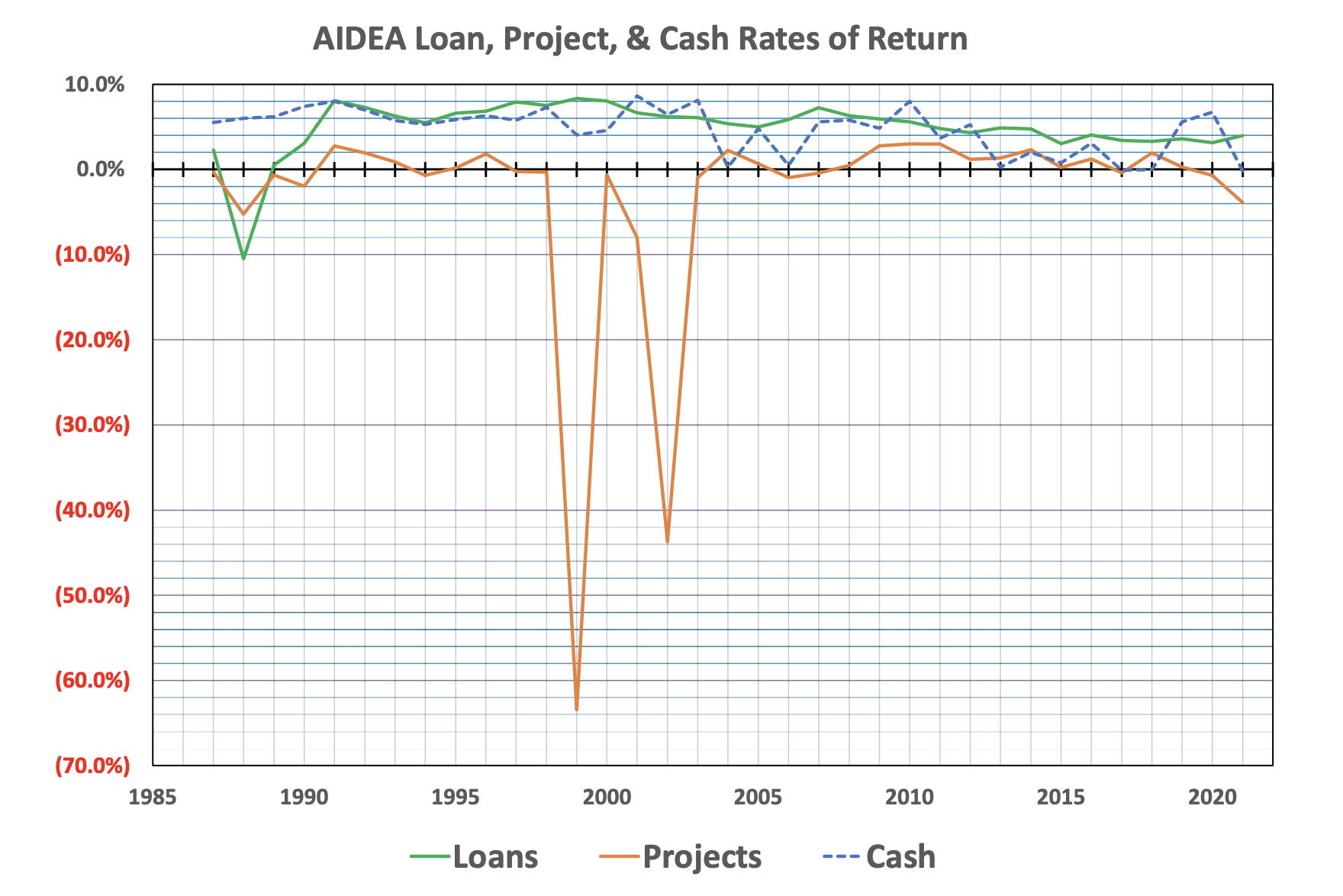Scathing accusations the 55-year-old Alaska Industrial Development and Export Authority, which has invested hundreds of millions of dollars subsidizing private industry projects, is a political plaything and enormous waste of public money were aired Tuesday in a report and news conference by a group of longtime state economists on behalf of a salmon industry entity.
The head of AIDEA, in a rebuttal interview, called the accusations “a biased and inaccurate report…by groups with an environmental agenda specifically focused against some of our programs” and thus to be the ones inflicting economic harm to the state. The lead agency presenting Tuesday’s report is SalmonState, which describes itself as “an Alaska-based organization that works to ensure Alaska remains a place wild salmon and the people who depend on them thrive.”
The critics argue AIDEA has cost the state $10 billion since the $308 million invested loans, bonds and other measures to “jump start the economy” has resulted in a total return to the agency of $1.4 billion (a 3.8% percent annual rate of return). Investing the money in the Alaska Permanent Fund with its historical 9.4% annual earnings, they claim, would have resulted in a balance of $11.4 billion.
The comparison is appropriate even though AIDEA and the Permanent Fund exist for entirely different purposes, said Gregg Erickson, co-author of the report titled “AIDEA – Cost and Financial Performance — A Long, Hard Look.” He said the bottom line is it’s all public money and, while state lawmakers at one point considered using some of the Permanent Fund to support economic development, that is being more effectively achieved via dividend payments.
“One comparison would be comparing jobs created by Permanent Fund Divided to jobs created by AIDEA,” he said. While he doubts such a study exists “if it was done it would show the PFD has far more horsepower for creating jobs than AIDEA’s efforts, dollar for dollar.”
AIDEA Executive Director Alan Weitzner said the study’s authors never asked the agency for its perspective or a response to the findings, and rejected accusations the agency’s investments are money losers and not subject to sufficient public scrutiny. He noted the agency’s assets have increased during its existence, as the study authors acknowledge, and annual audits of its financial statements are available at its website.
He was also dismissive of Erickson’s suggestion PFDs are doing more for job development in Alaska.
“It’s speculation on his part because we have tangible results,” Weitzner said.
An example of wasteful AIDEA spending in Southeast Alaska is the Bokan Mountain mining project on Prince of Wales Island, said Ginny Fay, author of a recent study whose findings were included in Tuesday’s report and a participant in the news conference.
She said the rare earth mineral mine found favor in the Alaska State Legislature in 2014 when it approved up to $145 million in bonding, due to China limiting its export of such materials and projections the mine would earn enough to repay a subsidy in two years. But since then the market for such materials has crashed as China loosened its restrictions and, as a result, when the federal government recently made $330 million in loans available through two departments the mining entity was unable to obtain any of those funds.
“If the Department of Energy and Department of Defense don’t see these as good loan investments, why would the state of Alaska invest its money it it?” Fay said, noting state lawmakers have continued to support alternative ways for AIDEA to prop up the mining project in the wake of its difficulties.
Weitzner, noting it’s the Legislature supporting ongoing bonding to support the mine, said its prospects and importance go beyond near-term economic returns.
“It is one of the U.S.’s only large deposits of rare earth elements,” he said “It’s part of Alaska being a solution in the U.S.’s secure supply chain.”
Weitzner’s characterization of AIDEA’s critics having an environmental agenda doesn’t fully reflect the resumes of Erickson and study co-author Milt Barker, both of whom have worked for state and federal economic agencies for decades in addition to private sector economic work. Also among the critics named in the news release is Rick Halford, a former Republican state senator and Alaska Senate President who, among other activities, was a leader of Alaska Gasline Development Corporation.
However, Halford is currently affiliated with Salmon Nation working to preserve Bristol Bay fisheries, and two other officials involved in Tuesday’s event have ties to salmon-related organizations including SalmonState.
Rep. Gov. Mike Dunleavy, Erickson said, is as a particularly egregious example of political favoritism throughout AIDEA’s existence, saying current projects being considered by the agency “are among the worst of the bunch in my opinion” since they involve, for instance, favoring industries such as mining at the expense of subsistence hunting and fishing rights.
“The Dunleavy administration, let’s not mince words, is really concerned about being able to say they’ve drummed up business here in Alaska,” Erickson said. But he said any economic gains may be short-term and “these projects are not going to produce the kind of nirvana their sponsors are touting.”
Jeff Turner, a spokesperson for Dunleavy, issued a written response stating the governor does not play a role in AIDEA’s decision making.
“The AIDEA board of directors is an independent board that determines the investment decisions for the organization. Any state appropriations to AIDEA are made by the Alaska Legislature,” Turner wrote.
The report and conference occurred one day after the most recent of several media reports noting AIDEA has lost numerous top officials during the past two years. Erickson said that “does indicate an agency perhaps in some difficulties…(but) it’s not the area we have much expertise in,” while Weitzner said the departures are at the same level as what’s happening at government entities throughout the state and country right now due to workforce shortages.
“There’s a lot of competition right now,” Weitzner said.
• Contact reporter Mark Sabbatini at mark.sabbatini@juneauempire.com

